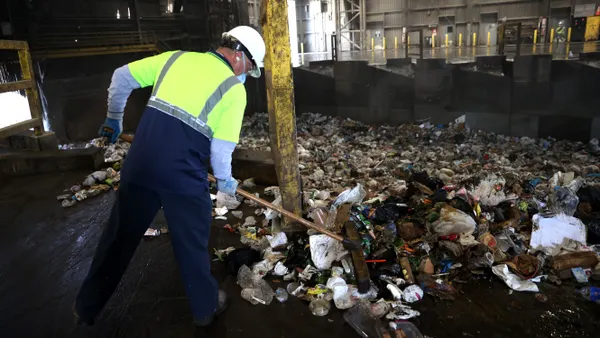Dive Brief:
- Legislation proposed by Council Member Steven Matteo is taking a new approach to illegal dumping. The bill would give administrative judges or hearing officers in New York the option of requiring up to 70 hours of community services rather than a civil penalty of up to $3,000, as reported by the Staten Island Advance.
- Penalties currently start at $1,500 but are seen as ineffective deterrents because tipping fees can be higher for the amounts and types of items being dumped. The person's car can also be impounded which would continue under Matteo's proposal.
- The problem is seen as particularly bad on Staten Island because of the wooded areas and quiet stretches of road. Since 2014, 37 violations have been issued for dumping on the island. Five were dismissed and the results of four are pending until hearings.
Dive Insight:
Litter may be a common sight in New York — even though residents are quick to report the Department of Sanitation for missed pick-ups — but one of the main issues at play here is electronic waste. Since the state's electronic waste disposal ban took effect in 2015 TVs and computers have been spotted on the side of the road all too often. After drop-off days saw overwhelming response, Matteo worked with DSNY to establish a pilot program of scheduled curbside pick-ups specifically for Staten Island residents.
This type of illegal dumping, often involving electronics or hazardous materials, is common. Ongoing issues recently led the Delaware Solid Waste Authority to fence in its drop-off sites and begin staffing them full-time during operating hours to cut down on incidents. Oakland, CA reportedly spends $5.5 million per year on the issue, employing nearly 40 full-time employees and using mobile cameras with license plate reading technology to catch dumpers in the act.
From targeted mailers to state investigations officials throughout the country have tried a range of approaches. Perhaps requiring violators to pick up other people's trash, and possibly their own, for 70 hours would be the type of karmic punishment that could have an effect.











